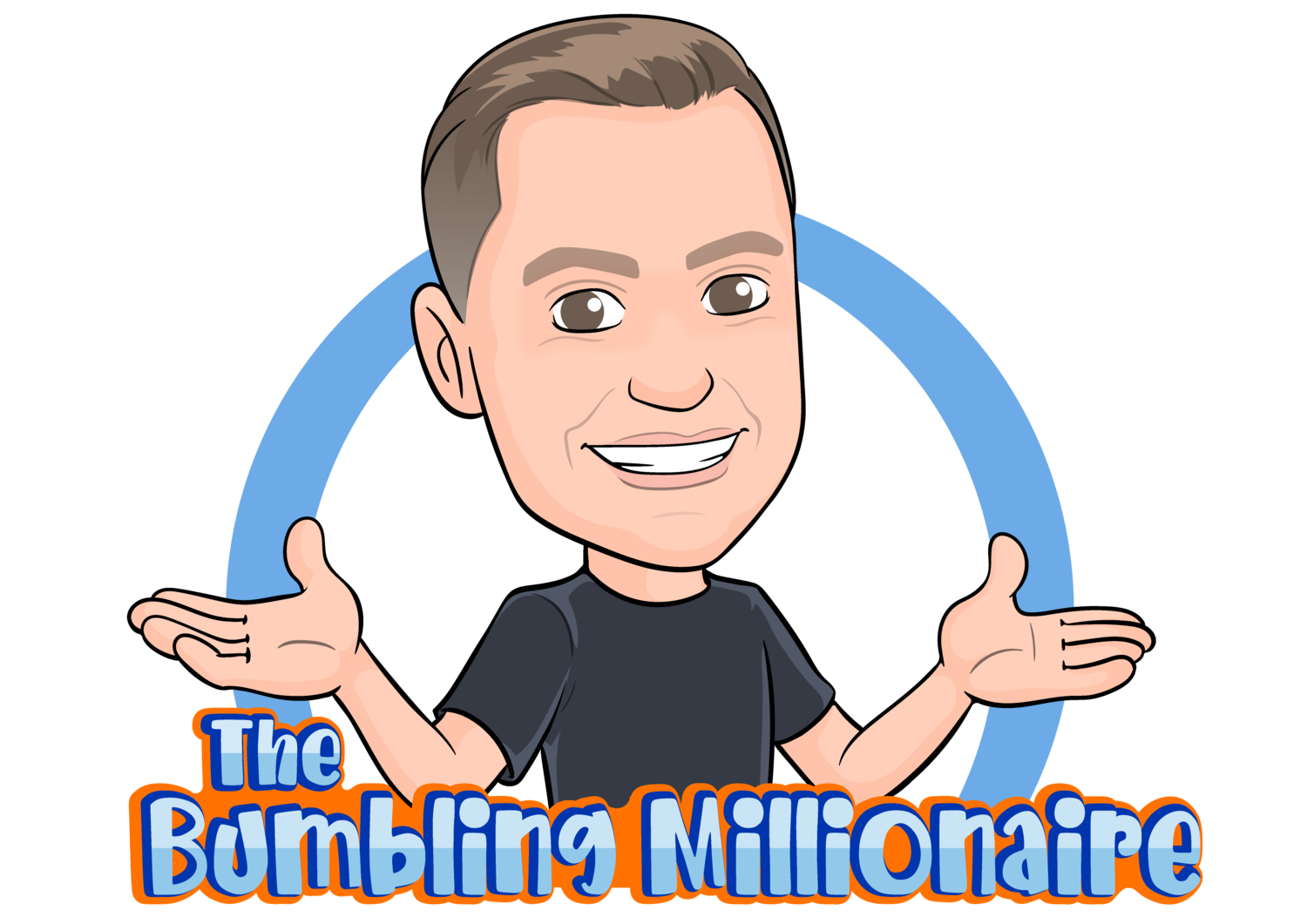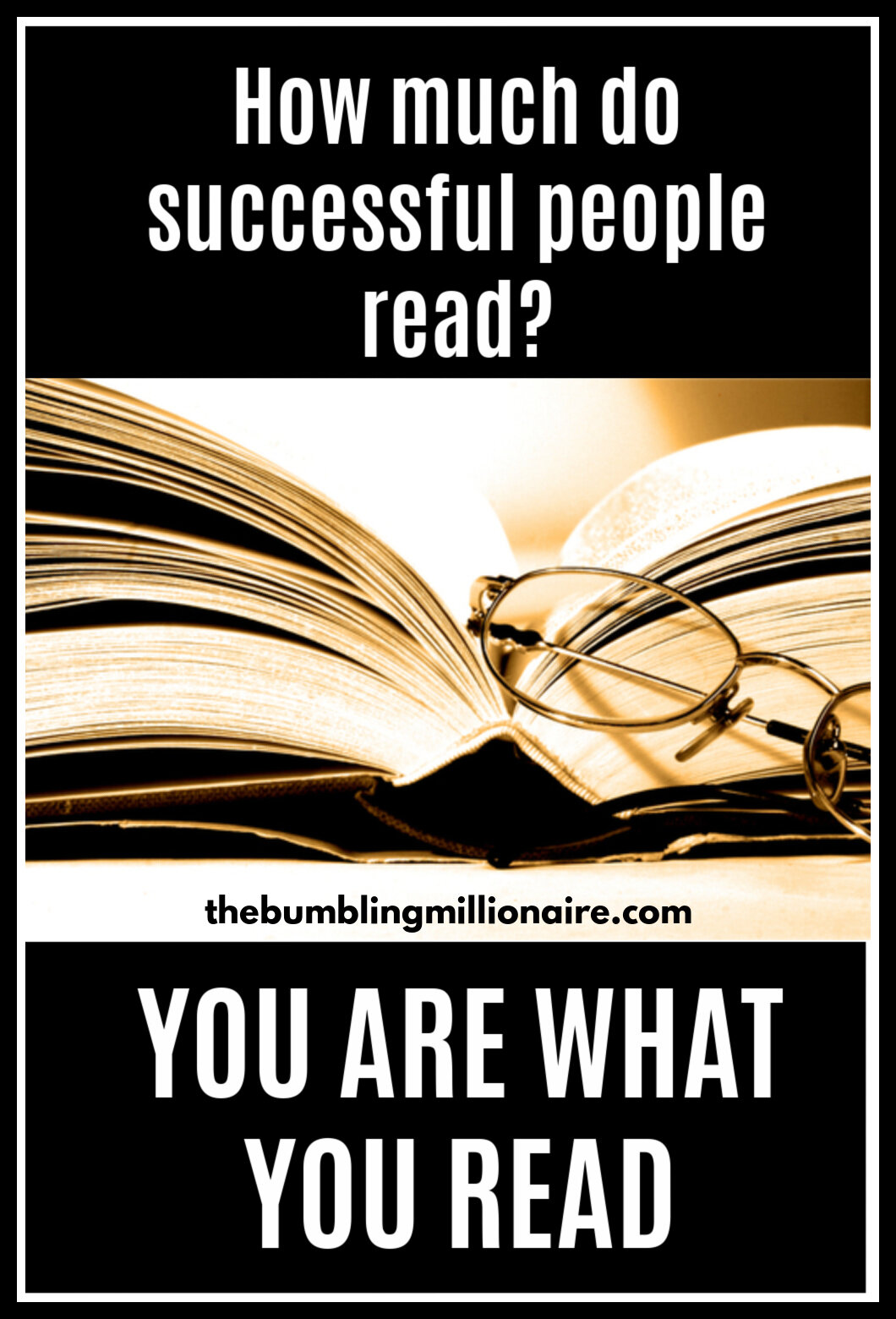You Are What You Read
/This post may contain affiliate links. Learn more by reading my disclosure.
There’s a famous computer coding concept known as GIGO – Garbage In / Garbage Out. If you put sloppy coding (information) into a computer, you will get equally or greater sloppy results.
The human brain is essentially a computer. It’s an easy concept to understand from there, right?
If we put bad stuff into our brains, then we’re going to get poor results out. Duh.
For the most part, as adults, we can control what goes into our brains.
We can turn off the television or, at the very least, turn the channel away from the latest excuse for reality TV and switch over to a worthwhile documentary.
We can power off the video game or choose to play a non-violent one.
We can choose which informational blog posts to read (thank you for reading this one, btw), instead of jumping over to TMZ.
Above all, we can choose to read a book.
What Do You Mean You Don’t Read?
A few years ago, Frank Zafiro and I co-authored the crime fiction novel, Some Degree of Murder. We did some appearances at bookstores including the now defunct, Hastings.
Hastings was an entertainment superstore, featuring books, movies and music. During its heyday, it was a cool place to visit. Except as an author.
For our appearance, Frank and I set up a table and displayed our book. Frank also had a couple other books in his River City series with him. He had a nice table placard that explained who he was an author and what he was doing. I was riding Frank’s coattails as he was presenting a professional author image.
Now, most visiting authors will sit behind a table, looking sad and sort of depressed. Not Frank and me. We stood and engaged with the customers. Part of it was sales, but part of it was our law enforcement background. You don’t sit when others are standing. You’re in an inferior position.
To engage with passing customers, we’d ask questions like, “Do you like mysteries?” or “Do you like crime fiction?”
There were some pleasant conversations with folks and a few books were sold. However, this was when we started to hear some surprising comments from the people we contacted.
Several people said, “I don’t read” and continued walking towards the movie section. I could have written this off as an ignorant version of “No, thanks,” except it was always said with either a crinkled nose toward the book or a sneer towards us.
The first few times we heard that we thought it was a bit of an anomaly. Then it repeated itself throughout the day and at other mega-store appearances.
There was the occasional person who would stop to talk with us after making that comment. They’d brag that they hadn’t read a book since high school while flipping through our novel. I use ‘brag’ literally because they were proud to have had avoided what they considered was the boring act of reading.
If I had to characterize the average customer’s appearance who said this, it wasn’t one of success; it was one of poverty.
These were such profound moments on Frank and me that we’ve talked about it for years. It was shocking to us that members of our society would willingly chose ignorance over knowledge and stagnation over personal growth.
Please note, this type of behavior never occurs at traditional bookstores. Customers go there expecting to read.
Looks Like We Got Ourselves a Reader
Bill Hicks was a comedian who passed away in 1994. Prior to his death, he was one of my favorites as his acerbic wit always felt like he was telling jokes for smart people. One of his bits was about sitting in a restaurant, reading a book, when a waitress walks up and asks, “What are you reading for?”
After Hicks replies in a snarky manner, another patron comments, “Look at what we have here, it looks like we got ourselves a reader.”
I read more now than ever before, especially since the start of Building-Income. I consume more blog posts than I ever thought possible but that doesn’t stop me from reading a book.
I read both digitally and in print.
For me, I truly prefer print. There is nothing better than holding a book in my hands. It’s almost spiritual. As I’m writing this post, it’s summer. I’ve spent many hours already this season reading a book while lying in my hammock.
However, digital does allow me to have a book always at the ready when a free moment arises. I have a mini-library in my phone’s Kindle app. If I have some unexpected downtime, I can call up a book and do some reading. Even if I don’t have a new book, I will re-read an old favorite.
Wow, That’s Deep
In an interesting Time magazine article, Reading Literature Makes Us Smarter and Nicer, Annie Murphy Paul referenced “deep reading,” the practice of reading books as opposed to the sort of reading done on the internet.
Murphy Paul described deep reading as “slow immersive, rich in sensory detail and emotion and moral complexity – a distinctive experience, different in kind from the mere decoding of words.”
A book’s lack of distractions such as hyperlinks, advertisements, and clickable games allows the reader to fully immerse themselves into the story. Deep reading doesn’t occur on the internet.
Murphy Paul makes a wonderful point that learning to read is a hard-earned skill for everyone. While it won’t fully atrophy over time, a reader’s ability to access the skill is diminished by how often it is used. If you don’t read for a considerable period and then decide to pick up a book, it may feel similar to exercising after an extended layoff. That concept made me pause.
Some of the folks who bragged that they hadn’t read since high school were in their 30s and 40s. If they haven’t really done anything beyond superficial reading for twenty or more years, their ability to focus on a book would be incredibly difficult. They’ve freely put themselves behind a huge curve.
Formal education will make you a living; self-education will make you a fortune. – Jim Rohn
If a portion of our society is willingly not picking up a book, fiction or non-fiction, they’ve doomed themselves to the education they received in high school.
How many of us felt truly prepared for success by primary education?
Reading Makes You Mentally Stronger
Reading exercises your brain. Just like going to the gym works out muscles, reading works out your mind. You’re running it around the track so to speak.
While reading, you will be exposed to new words and concepts. This can expand your vocabulary and communication skills. You may be forced to struggle with ideas, thereby growing your analytical skills.
Reading increases your memory since you’re staying engaged in a book or story for a length of time. This is different than reading a short article or newspaper. When you read that piece, it’s over and done. Move on. However, with a novel you need to remember the various characters involved, where they’ve been, who they’ve interacted with, what they have felt, and so on.
Along with the increased memory, your ability to focus is going to get a work-out as well. If you’ve only been reading short articles for the past couple years and suddenly you want to read a full-length novel, prepare to feel restless. Your focus is going to wane every couple thousand words. You’re mentally out of shape. Don’t worry, it’s like the gym. You just need to pick up a book and get back to it.
Successful People Read
It’s been heavily reported that there is a correlation between reading and success.
In Tom Corley’s Rich Habits: The Daily Success of Habits of Wealthy Individuals, it's shared that the rich read daily for self-improvement while the poor read for entertainment, if they read at all.
Warren Buffett’s reading has been well documented as he reportedly spends five to six hours a day doing the activity. When once asked how to get smarter, Buffett pointed to a stack of papers and said, “read 500 pages like this every day. That’s how knowledge builds up, like compound interest.”
Compound interest. That was an awesome comment about reading from one of the richest men in the world. If I loop back to my earlier story about the folks who proudly claim to not read since high school, can you see the horror of their decision? It’s as bad as proudly saying, “I’m not putting a penny into savings.”
In the New York Times article Obama's Secret to Surviving the White House Years: Books, former President Barack Obama stated that books, “have been invaluable to me.” He went on to say that during his presidency, books “have allowed me to sort of maintain my balance during the course of eight years, because this is a place that comes at you hard and fast and doesn’t let up.”
Former president George W. Bush was also reported to be a prolific reader. Between 2006 and 2008, he read an astounding 186 books, mostly history and biographies. Some will never read that many books in a lifetime yet they will complain when others experience success that they don’t.
What's Your Plan?
Okay, so we can agree that reading is important. Do you have a plan to guarantee success with your reading?
It doesn’t have to be something outlandish. It can be something as simple as, “I will read one book a month.” Or you can get aggressive and say, “I will read one book a week.”
I have a reading plan. It’s nothing grand, but rather a simple road map I try to follow every year. Here it is.
For every book I read for pleasure, I will read one book for education.
Simple yet purposeful.
For a period, I read nothing but crime fiction and mysteries. Oh, man, I love those books. I was always entertained, but it was like a steady diet of candy. Yummy but never truly fulfilling.
Then the pendulum swung.
When I realized I needed to make a change in my life, I started reading self-help books. I went overboard and read them all the time. I didn’t allow myself to enjoy the crime fiction books I love so much. There was a period that reading became an exercise of learning only. Reading only educational / self-help books removed one of my favorite past-times: crime fiction. Therefore, I actually read less. It was a bad cycle.
My reading plan has a positive impact.
I’m often excited to the read the next self-help or educational book, but must wait until I’m finished with my latest fiction novel. Then the reverse happens. I’ll start an educational book and know that when I’m finished, a fiction book will be waiting for me. I’m rewarded on both sides of my reading plan.
My strategy may not be ideal for you, but it works aces for me. That’s why it’s my plan and has been for almost a decade now. In that time, I’ve moved through a lot of books and that makes me extremely happy and, hopefully, better educated.
What's your reading plan? If you don't have one, is it time you developed one?





